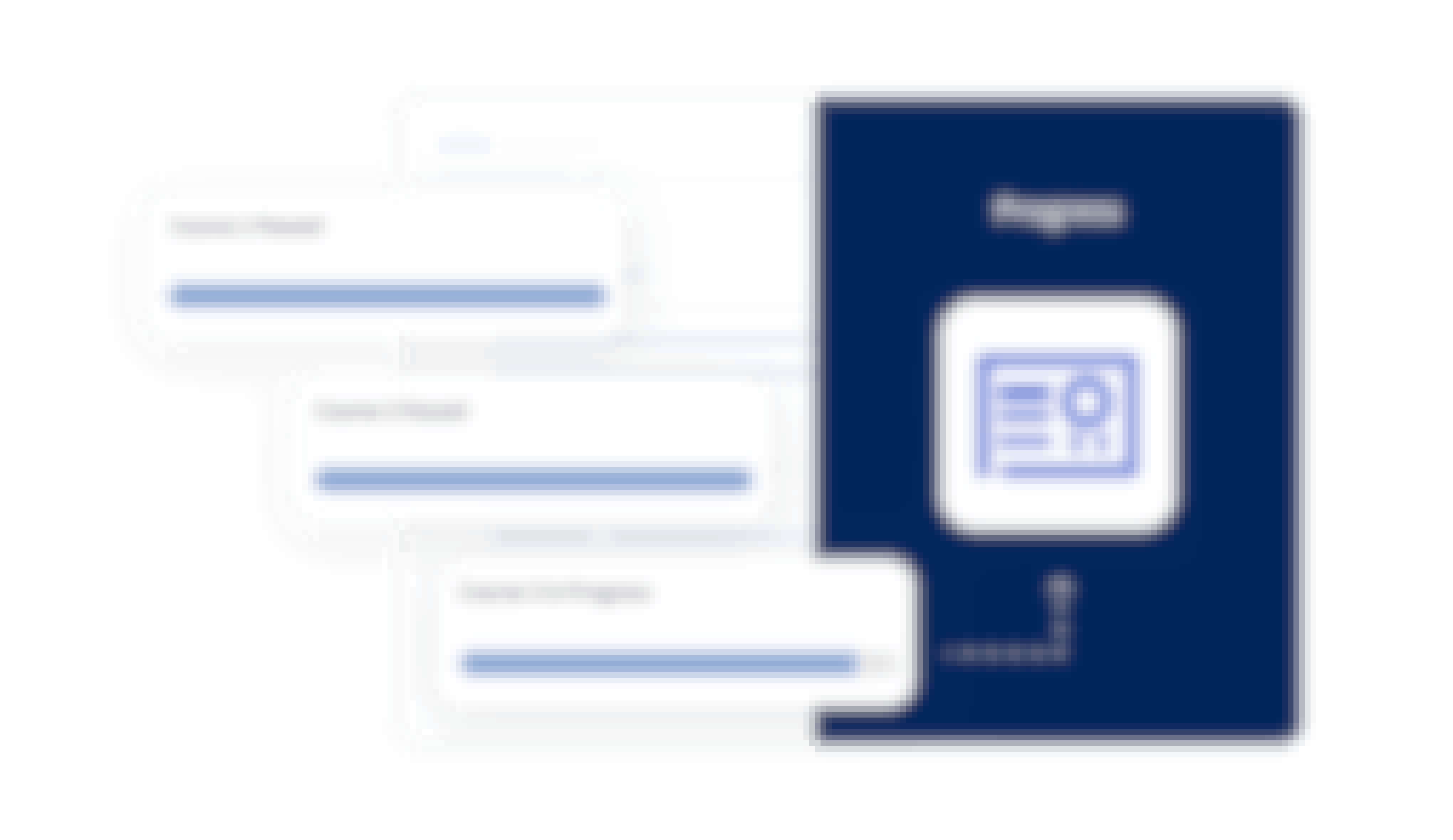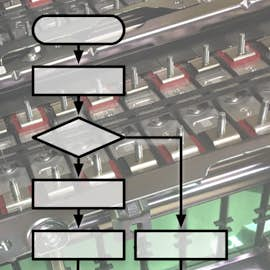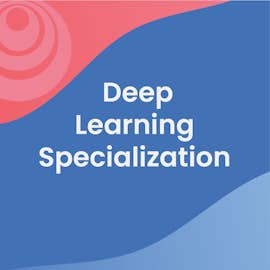
Master of Science in Data Science


Master of Science in Data Science
University of Colorado Boulder
Accredited degree
Offered by the University of Colorado Boulder
Finish in 24 months
30 courses total (30 credit hours) full or part-time, 4–6 hours per week per course
$15,750 USD total cost
Each time you take a course, pay tuition for that course only ($525/credit hour)
Performance-based admission
Start learning and show us you’re ready, regardless of your background
100% online
Lecture videos, hands-on projects, and connection with instructors and peers
Become a data-driven leader at the intersection of tech and strategy
Position yourself at the intersection of computer science, statistics, and business applications with the Master of Science in Data Science (MS-DS). This degree is ideal for learners who want to do more than build models; it prepares you to translate data into strategic insights and drive real-world impact.
Uniquely co-taught across five university departments, this program trains you to be the crucial translator between technical teams and business leaders. You will learn to build predictive models, design experiments, and, most importantly, interpret and communicate your findings to shape organizational decisions. This interdisciplinary approach ensures you're prepared not just for a technical role, but for analytics leadership.
Program admission is performance-based, determined by your success in three preliminary courses, not your academic history, making a career in the high-growth field of data science accessible. You’ll graduate from a top-ranked global university, prepared for essential roles like Data Scientist, Business Intelligence Analyst, or Analytics Manager.
What sets this program apart?
Earn a fully accredited university credential
Interdisciplinary approach
Flexible, interdisciplinary study
Drive real-world impact
Join a thriving data community
Accessible to all backgrounds
Applications for the Spring 2026 session 1 are open!
- Enrollment deadline: February 20, 2026
Upcoming events
- Stay tuned!
Additional resources
Questions? Contact the CU Boulder MS-DS team at cuboulder-msds@coursera.org.
Spring 2026 session 1 deadline: February 20
Start your application or request more information.
Accredited degree
Offered by the University of Colorado Boulder
Finish in 24 months
30 courses total (30 credit hours) full or part-time, 4–6 hours per week per course
$15,750 USD total cost
Each time you take a course, pay tuition for that course only ($525/credit hour)
Performance-based admission
Start learning and show us you’re ready, regardless of your background
100% online
Lecture videos, hands-on projects, and connection with instructors and peers
Accredited degree
Offered by the University of Colorado Boulder
Finish in 24 months
30 courses total (30 credit hours) full or part-time, 4–6 hours per week per course
$15,750 USD total cost
Each time you take a course, pay tuition for that course only ($525/credit hour)
Performance-based admission
Start learning and show us you’re ready, regardless of your background
100% online
Lecture videos, hands-on projects, and connection with instructors and peers
Become a data-driven leader at the intersection of tech and strategy
Position yourself at the intersection of computer science, statistics, and business applications with the Master of Science in Data Science (MS-DS). This degree is ideal for learners who want to do more than build models; it prepares you to translate data into strategic insights and drive real-world impact.
Uniquely co-taught across five university departments, this program trains you to be the crucial translator between technical teams and business leaders. You will learn to build predictive models, design experiments, and, most importantly, interpret and communicate your findings to shape organizational decisions. This interdisciplinary approach ensures you're prepared not just for a technical role, but for analytics leadership.
Program admission is performance-based, determined by your success in three preliminary courses, not your academic history, making a career in the high-growth field of data science accessible. You’ll graduate from a top-ranked global university, prepared for essential roles like Data Scientist, Business Intelligence Analyst, or Analytics Manager.
What sets this program apart?
Earn a fully accredited university credential
Interdisciplinary approach
Flexible, interdisciplinary study
Drive real-world impact
Join a thriving data community
Accessible to all backgrounds
Welcome back! 🎉
We’re glad that you’re interested in learning more about this degree’s academics. Get started now!

Applications for the Spring 2026 session 1 are open!
- Enrollment deadline: February 20, 2026
Upcoming events
- Stay tuned!
Additional resources
Questions? Contact the CU Boulder MS-DS team at cuboulder-msds@coursera.org.
Welcome back! 🎉
We’re glad that you’re interested in learning more about this degree’s academics. Get started now!


Build toward a degree at your own pace
Not ready to commit to a full degree? Start with a course. When you complete eligible courses, you may be able to have your learning recognized for credit if you are admitted and enroll in the Master of Science in Data Science. Gain in-demand skills while building towards a degree.
Get started with the following eligible specialization and build your progress toward a future degree.
*Successful application and enrollment are required. Eligibility requirements apply. Each institution determines the number of credits recognized by completing this content that may count towards degree requirements, considering any existing credits you may have. Click on a specific course for more information.

Match your learning to your budget with flexible pay-as-you-go tuition
- $15,750 USD tuition total With a significantly lower cost than comparable programs, you can pursue a high-quality education at a more affordable price.
- Pay-as-you-go tuition You only pay for the courses in your next session. If a scheduling conflict arises, you’re free to take a session off without charges or penalties.
- Transparent pricing Avoid surprises with transparent tuition. Your price covers everything from course access and exam proctoring to dedicated support and career resources.

No application needed, ever―just start learning and show us you’re ready
Even if you don’t have a bachelor’s degree or extensive work experience, you can become part of the MS-DS. You’ll never have to apply to gain admission into the program. After passing three for-credit courses in the MS-DS program with grades of 3.0 or higher, you’ll be qualified.

Spring 2026 session 1 deadline: February 20
Don’t miss your chance to join the cohort!
Build toward a degree
When you complete these programs, you may have learning recognized for credit toward this degree, if you are admitted and enroll.¹
¹Successful application and enrollment are required. Eligibility requirements apply. Each institution determines the number of credits recognized by completing this content that may count towards degree requirements, considering any existing credits you may have. Click on a specific course for more information.
Build toward a degree
These courses are part of the degree program. If you are admitted and enroll, your completed coursework may count toward your degree learning and your progress can transfer with you.¹
 U
UUniversity of Colorado Boulder
Advanced · Specialization
 U
UUniversity of Colorado Boulder
Advanced · Specialization
 UU
UUMultiple educators
Get Started in Algorithms for Battery Management
Intermediate · Specialization
¹Successful application and enrollment are required. Eligibility requirements apply. Each institution determines the number of credits recognized by completing this content that may count towards degree requirements, considering any existing credits you may have. Click on a specific course for more information.
Prepare for this degree
These courses may provide you with a preview of the topics, materials and instructors in a related degree program which can help you decide if the topic or university is right for you.
 U
UUniversity of Colorado Boulder
Learn Mathematical Foundations for Data Science
Intermediate · Specialization
Frequently asked questions
Graduates with a degree in data science are well-prepared to enter the workforce as data architects, analysts, and engineers; machine learning architects and engineers; business intelligence developers; and statisticians, among other professions.
The number of data scientist jobs is expected to grow by 36 percent between 2021 and 2031—more than seven times faster than the average growth rate for all jobs—according to the U.S. Bureau of Labor Statistics.
Yes. The online MS-DS program falls under the University of Colorado Boulder’s overall accreditation by the Higher Learning Commission (HLC).
Yes. Simply enroll in any course and take as many as you like. No commitment is required. You can also enroll in the non-credit course on the Coursera platform and upgrade to the for-credit version at a later time by paying the associated tuition.
You can access course materials on the Coursera platform—lecture videos, quizzes, and readings—anytime and anywhere. Courses have been designed by CU Boulder’s faculty specifically for an online learning environment.
If a course uses proctoring for the final exam, the exam will be administered by ProctorU, a proctoring service that allows you to complete exams or project-based assessments online.
If you have any questions about the program, email us at datascience@colorado.edu.
The program is designed to be flexible for working individuals. Students who take three courses per session will complete the MS-DS degree in about two years. There are six eight-week sessions per year. The degree is flexible. Take more courses per session to complete the degree more quickly, or fewer courses per session if you prefer a slower pace. Please note that you must complete all courses within eight years.
The work for each course you enroll in may take four to six hours of work per week depending on your knowledge and skill.
You can learn at your own pace in a flexible and fully online format. Take only the coursework you need to build credentials that will advance your career, from individual courses to the full master’s degree.
30 credits are required to earn the Master of Science in Data Science degree. Each course is worth one credit.
You can take as many courses as you would like at the same time. You must complete all for-credit coursework and exams by the last day of each session. It’s recommended that you start with one course and decide from there if it is feasible to take more at the same time.
Yes. When you successfully complete the online MS-DS degree, you may come to campus to participate in the graduation ceremony.
No. You cannot switch between the MS-DS on Coursera and the on-campus program.
Yes. The same renowned and expert faculty at CU Boulder teach both online and on-campus courses.
Yes. There are weekly online office hours during which you may interact with course facilitators and ask questions.
No. Online students do not have access to on-campus facilities. However, once admitted you can access online resources including CU Boulder libraries, Career Services, and Forever Buffs Alumni Services.
Once you enroll in a for-credit course, you will receive a CU email address. . There is no physical ID card.
Yes. The Slack channel and discussion forums are ways to connect and network. The program also hosts a number of in-person and online networking events throughout the year.
Yes. Once admitted to the program, you’ll have access to Handshake, a comprehensive resource for all things career related, and VMock online resume review. Graduates can also join the Forever Buffs alumni association.
No. Internships are not part of the program.
There is no application to submit. Admission is performance-based, which means you simply need to show that you can do the work.
To get started, complete the enrollment form during an enrollment window. Indicate you want to earn the master’s degree if applicable, and pay the tuition for the course(s) you are taking that term. Complete a pathway of three for-credit courses with a GPA of 3.0 or higher, and you will automatically be admitted into the master’s degree.
No. There is no application or application fee.
No. Transfer credits from other institutions are not accepted.
There are currently no scholarships or financial aid available for this program.
Tuition is $525 per credit hour and $15,750 for the full 30-credit master’s degree. With “pay-as-you-go” tuition, you pay only for the courses you are taking in the upcoming term at the time of enrollment.
There are no formal prerequisites. However, you should be knowledgeable in the following:
- Python
- R programming
- Calculus including derivatives and integrals
- Linear algebra including matrix multiplication, matrix inversion, and solving linear systems using matrices
To be admitted to the MS-DS program, you must enroll in and complete a pathway with a 3.0 GPA or better. Your pathway is a series of three one-credit courses in either statistics or computer science. All the pathway courses are part of the core degree curriculum, so your progress will directly stack toward a full degree.
You do not need any specific background to be admitted to the program. However, it is helpful to have previous experience in statistics and computer science. Not sure if you're ready for a for-credit class? You can enroll in a Pathway as a non-credit learner, which gives you the option to preview course content. Then, you can upgrade to the for-credit version and pay tuition when you are ready.
You are also welcome to enroll in the Bridge to Data Science courses if you need to brush up on your statistics and/or programming skills. These non-credit courses are designed to prepare you for the MS-DS program.
Yes, it’s the same as the on-campus program. Upon program completion, you will receive your diploma. It is a degree conferred for a Master of Science in Data Science, and it does not have any "online" or "Coursera" designations.
A cross-listed course is offered under two or more CU Boulder degree programs on Coursera. For example, Dynamic Programming, Greedy Algorithms is offered as both CSCA 5414 for the MS-CS and DTSA 5503 for the MS-DS.
- You may not earn credit for more than one version of a cross-listed course.
- You can identify cross-listed courses by checking your program’s student handbook.
- Your transcript will be affected. Cross-listed courses are considered equivalent when evaluating graduation requirements. However, we encourage you to take your program's versions of cross-listed courses (when available) to ensure your CU transcript reflects the substantial amount of coursework you are completing directly in your home department. Any courses you complete from another program will appear on your CU transcript with that program’s course prefix (e.g., DTSA vs. CSCA).
- Programs may have different minimum grade requirements for admission and graduation. For example, the MS-DS requires a C or better on all courses for graduation (and a 3.0 pathway GPA for admission), whereas the MS-CS requires a B or better on all breadth courses and a C or better on all elective courses for graduation (and a B or better on each pathway course for admission). All programs require students to maintain a 3.0 cumulative GPA for admission and graduation.
An outside elective (sometimes called an “external” elective) is a course offered by another CU Boulder degree program on Coursera. You may apply credits earned from outside elective courses to complete your degree’s elective requirements. Tuition rates vary by program. Credit limits apply and not all courses are applicable to all degree programs. See your program’s student handbook for details and restrictions.
The following courses are not considered outside electives:
- Courses offered by your degree program: You can identify courses offered by your degree program by the four-letter prefix before the course number: Computer Science: CSCA, Data Science: DTSA, Electrical Engineering: ECEA, Engineering Management: EMEA
- Courses that are cross-listed with a course offered by your degree program: You can identify cross-listed courses by checking your program’s student handbook.
For example, Data Mining Pipeline is a one-credit cross-listed course available as both DTSA 5504 and CSCA 5502. CSCA 5502 is not considered an outside elective for Data Science students, and DTSA 5504 is not considered an outside elective for Computer Science students. These courses would be considered outside electives for Electrical Engineering and Engineering Management students because they are not cross listed with ECEA or EMEA courses, respectively.
No. Cross-listed courses are considered equivalent to each other when evaluating graduation requirements. They do not count toward your limit of “outside” elective courses. Please see What is a cross-listed course for important details.
Yes. Cross-listed courses are considered equivalent when evaluating graduation requirements. You can identify cross-listed courses by checking your program’s student handbook.
No. Key courses in these programs overlap, and the Graduate School’s “No Double Dipping” rule prevents students from applying credit from one course toward 2 graduate degrees (or toward 2 graduate certificates).
However, you can earn a Data Science Graduate Certificate on your way to an MS-CS degree without needing more than 30 credits. See Can I earn both a Data Science Graduate Certificate and an MS-CS? for details.
You can earn a Data Science Graduate Certificate on your way to an MS-CS degree without needing more than 30 credits. This is possible because multiple courses in the MS-CS and MS-DS programs are cross listed. Note that you can apply credits from one course toward 1 graduate degree and 1 graduate certificate.
To earn a CU certificate on Coursera, you must maintain a cumulative certificate GPA of 3.00 or higher. Individual certificates may have additional requirements. CU certificates on Coursera are automatically awarded once all requirements are met.
Make sure you complete all steps to earn the certificate(s) you are most interested in. Additional steps are required to earn graduate certificates offered by CU Boulder degree programs on Coursera other than your own program. Your program’s student handbook (MS-CS | MS-DS) outlines those steps and other important considerations, including rules preventing students from double counting courses between multiple certificates.
Yes, but first make sure you understand important considerations & required steps. Make sure you read all of items below before you use the Data Science enrollment form to enroll in cross-listed for-credit courses now and get a head start on the MS-CS degree. This will help you understand the important steps you’ll need to take to change your target program to the MS-CS once it launches in fall.
- Do NOT indicate degree interest on the MS-DS enrollment form. There is a question on the MS-DS enrollment form that asks if you are interested in pursuing the degree. Please do NOT select this option if you intend to pursue the MS in Computer Science when it launches. If you indicate degree interest on the MS-DS form, you will need to complete extra steps later to change your degree choice to the MS-CS degree. If you have already completed an MS-DS course, see Can I change to the MS-CS if I have already completed data science courses?
- Choose courses that will count toward the MS-CS. Note that, of the 30 credits required for the MS-CS, you may complete up to 6 elective credits from other CU Boulder degrees on Coursera that both (a) do not have a CSCA prefix, and (b) are not cross listed with a CSCA course. All courses must be graduate level, offered on Coursera, and meet all applicable academic standards. This includes all courses offered by the ME-EM, MS-DS, or MS-EE on Coursera without a CSCA prefix, except the following four courses. Credit for the following four courses cannot be applied toward any MS-CS requirement: DTSA 5302 Cybersecurity for Data Science, DTSA 5303 Ethical Issues in Data Science, DTSA 5501 Algorithms for Searching, Sorting, and Indexing, DTSA 5502 Trees and Graphs: Basics
- Decide whether you are happy with fewer CS courses appearing on your CU Boulder transcript. CU Boulder's Department of Computer Science encourages MS-CS students to take the Computer Science (CSCA) versions of cross-listed courses to ensure their transcripts reflect the substantial amount of coursework they are completing directly in their home department. Any MS-DS courses you complete will appear on your CU transcript with the Data Science prefix (DTSA).
Yes, but first make sure you understand important considerations & required steps outlined below.
Please be aware that the MS-DS and MS-CS are different degree programs with different requirements. While the programs share a similar structure using performance-based admission, pay-as-you-go tuition, and options for both non-credit and for-credit experiences, there are also important differences. Please carefully review the following:
- Recommended prerequisite knowledge: Though neither program has formal prerequisite requirements, they do recommend students have familiarity with particular subjects. See recommended prerequisite knowledge for the MS-DS and the MS-CS.
- Admissions requirements: See a list of admissions requirements for the MS-DS and the MS-CS.
- Curriculum: See an outline of coursework requirements for the MS-DS and the MS-CS.
- Grade requirements: The MS-CS requires a minimum grade of B on all breadth courses (including pathway courses) and a minimum of a C on all elective courses. If you have not earned these minimum grades in the DTSA version of a course, you will not be able to apply that credit toward the MS-CS unless you retake the course and meet this minimum grade requirement. Both programs require a 3.0 cumulative GPA and 3.0 pathway GPA. See details for both programs in the MS-DS and MS-CS student handbooks.
- Tuition: Tuition rates vary by program. See details for the MS-DS and MS-CS.
Please be careful to indicate your degree interest properly, as noted below:
- DO indicate degree interest on the MS-CS enrollment form. You will start using the MS-CS enrollment form to select, enroll in, and pay for for-credit courses. At that point, you will indicate that you are interested in pursuing a degree on the MS-CS enrollment form.
- If you already indicated you were interested in “pursuing a degree” on the MS-DS enrollment form, you must take additional steps to change your degree to the MS in Computer Science. You must email reg-specialprograms@colorado.edu to request a program change from the online MS-DS to the online MS-CS.
You will not be admitted to the MS-CS until you meet all requirements. You must meet all admission requirements outlined in the MS-CS student handbook, including completing a full pathway specialization with a B or better in each course. You will also need to indicate your intent to pursue the MS-CS degree, which you can only do on an MS-CS enrollment form. Admission decisions are released once per session, approximately 3-4 weeks after the end of the session.
More questions?
Visit the learner help centerSpring 2026 session 1 deadline: February 20
Don’t miss your chance to join the cohort!
